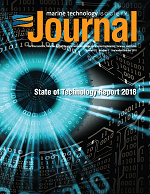
MARINE TECHNOLOGY SOCIETY JOURNAL
metrics 2024
Advancing Knowledge in Oceanography and Engineering
Introduction
MARINE TECHNOLOGY SOCIETY JOURNAL, published by the Marine Technology Society, Inc., serves as a critical forum for advancing the field of marine engineering and oceanography. With a rich history dating back to its inception in 1969 and continuing through various converged years until 2024, this journal is recognized for its contributions to the understanding of marine technologies and their applications. It currently holds a notable Q3 ranking in both Ocean Engineering and Oceanography, as per the 2023 metrics, underscoring its significance in these domains. Although access is not open, the journal rigorously assesses and publishes high-quality research articles, technical notes, and reviews that engage a wide readership of researchers, industry professionals, and students alike. With the journal's aim to disseminate innovative findings and foster dialogue within the marine community, it promises to be an essential resource for anyone looking to explore the dynamic field of marine technology.
Metrics 2024
 0.29
0.29 0.70
0.70 0.90
0.90 50
50Metrics History
Rank 2024
Scopus
IF (Web Of Science)
JCI (Web Of Science)
Quartile History
Similar Journals

Research in Marine Sciences
Connecting researchers to foster marine conservation efforts.Research in Marine Sciences, ISSN 2538-5542, is a leading journal published by ARMAN DARYA INC, specializing in the dynamic and interdisciplinary field of marine science. With a commitment to advancing knowledge in areas such as marine ecology, oceanography, and marine conservation, this journal provides a collaborative platform for researchers, professionals, and students to disseminate their findings. Although it operates under a traditional subscription model, the journal ensures that the latest research is accessible to a wide audience, promoting the understanding of marine environments crucial for biodiversity and sustainability. The journal aims to bridge the gap between theoretical research and practical applications, emphasizing the need for rigorous studies that address pressing marine issues in a rapidly changing world. By contributing to the body of literature in marine sciences, Research in Marine Sciences plays a vital role in shaping the future of marine research and policy-making.
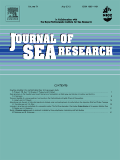
JOURNAL OF SEA RESEARCH
Pioneering Discoveries in Aquatic Science and EcologyJOURNAL OF SEA RESEARCH, published by Elsevier, is a premier academic journal dedicated to advancing knowledge in the fields of aquatic science, ecology, and oceanography. Since its inception in 1996, this journal has provided a vital platform for researchers and professionals to disseminate groundbreaking findings and promote fostering interdisciplinary discussions. With its impressive Q2 ranking in multiple categories, including Aquatic Science and Ecology, Evolution, Behavior and Systematics, it positions itself as a significant contributor to marine and environmental studies. The journal is accessible in both print (ISSN: 1385-1101) and online formats (E-ISSN: 1873-1414), ensuring wide reach and engagement within the scholarly community. Researchers and students alike will find the journal not only a reliable source of information but also a source of inspiration for future explorations. With a commitment to quality and a broad scope that spans fundamental to applied research, JOURNAL OF SEA RESEARCH remains an indispensable resource for understanding the complexities of marine environments and their relevance to our changing world.
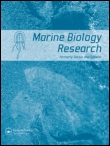
Marine Biology Research
Innovating research for thriving ocean ecosystems.Marine Biology Research is a premier journal published by Taylor & Francis, focusing on the dynamic field of marine biology and its intersecting realms of aquatic science, ecology, and oceanography. Since its inception in 2005, this journal has served as a crucial platform for researchers and professionals to disseminate their findings, with a vision extending to 2024 and beyond. The journal is recognized with a Q3 quartile ranking in both Aquatic Science and Ecology, Evolution, Behavior and Systematics, underscoring its growing influence in these fields as evidenced by its Scopus rankings. Located in the United Kingdom, Marine Biology Research aims to foster collaboration and innovation through open access options, facilitating knowledge exchange among the academic community. With a steady commitment to advancing marine sciences, this journal is an invaluable resource for those dedicated to understanding and preserving our ocean ecosystems.

JOURNAL OF OCEANOGRAPHY
Advancing Knowledge in OceanographyJOURNAL OF OCEANOGRAPHY, published by Springer, stands as a leading academic journal in the field, with an impressive Q1 ranking in Oceanography for 2023. Since its inception in 1992, this journal has dedicated itself to the dissemination of high-quality research that spans a diverse array of topics within oceanography and earth sciences. With an ISSN of 0916-8370 and an E-ISSN of 1573-868X, it plays a crucial role in bridging the gap between academia and practical marine applications. The journal is indexed in Scopus, ranking #57 out of 145 in its category, reflecting its rigorous academic standards and the impact of its published works, reaching a notable ile in the 61st percentile. Located in Japan, the JOURNAL OF OCEANOGRAPHY provides a vital platform for sharing significant research findings that contribute to our understanding of marine environments, aiming to foster interdisciplinary collaboration among researchers, professionals, and students dedicated to marine science.

MARINE GEORESOURCES & GEOTECHNOLOGY
Transforming Marine Research into Real-World SolutionsMARINE GEORESOURCES & GEOTECHNOLOGY, published by Taylor & Francis Inc, is a premier interdisciplinary journal that addresses critical issues at the intersection of geosciences, engineering, and oceanography. With an ISSN of 1064-119X and E-ISSN 1521-0618, this journal has been pivotal since its inception in 1993, delivering high-quality research through 2024. Recognized for its scholarly impact, it boasts a Q2 ranking in key categories including Geotechnical Engineering, Ocean Engineering, and Oceanography, demonstrating its significance within these fields. The journal features a dynamic range of articles, encompassing both theoretical and application-based studies that contribute to understanding marine resources and geotechnical challenges in various environments. Engaging with MARINE GEORESOURCES & GEOTECHNOLOGY ensures that researchers, professionals, and students remain at the forefront of developments in marine science and technology, while fostering collaboration and innovation in tackling complex geological and oceanographic problems.
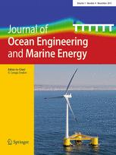
Journal of Ocean Engineering and Marine Energy
Navigating the Future of Renewable Ocean SolutionsJournal of Ocean Engineering and Marine Energy, published by SpringerNature, stands at the forefront of interdisciplinary research within the fields of ocean engineering and marine energy. Since its inception in 2015, this journal has aimed to address critical challenges and innovations in energy systems, particularly those harnessed from marine environments, thereby contributing to sustainable development and efficient resource management. With an esteemed Q2 ranking in multiple categories such as Energy Engineering and Power Technology, and Ocean Engineering, the journal serves as a vital platform for researchers, professionals, and students seeking to disseminate and engage with cutting-edge research and technological advancements. Boasting a robust readership and a commitment to open-access principles, the journal fosters a collaborative environment for the exploration of new ideas and approaches in a rapidly evolving sector. By bridging the gap between academia and industry, Journal of Ocean Engineering and Marine Energy remains instrumental in shaping the future of renewable energy solutions and environmental sustainability.
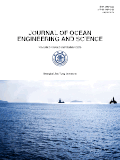
Journal of Ocean Engineering and Science
Unraveling the mysteries of the marine world through science.The Journal of Ocean Engineering and Science, published by Elsevier, is a prominent academic journal dedicated to advancing the field of ocean engineering and environmental sciences. Since its inception as an Open Access journal in 2016, it has rapidly gained recognition, achieving significant impact factor ratings with notable placements in the prestigious Q1 category for Ocean Engineering and Oceanography, and Q2 for Environmental Engineering in 2023. With a remarkable ranking of #3 out of 105 in Ocean Engineering and #4 out of 145 in Oceanography according to Scopus, the journal plays a critical role in disseminating cutting-edge research and innovative solutions addressing complex challenges faced by marine environments. Operating from Amsterdam, Netherlands, the Journal of Ocean Engineering and Science invites contributions from researchers, professionals, and students worldwide, emphasizing the importance of interdisciplinary approaches in achieving sustainable maritime practices.

Ocean and Coastal Research
Exploring the depths of aquatic knowledge.Ocean and Coastal Research, published by the Institute Oceanográfico of the University of São Paulo, is an essential academic journal dedicated to advancing the fields of Aquatic Science, Oceanography, and Water Science and Technology. Established in 2020, the journal has quickly become a noteworthy platform contributing to the understanding and sustainable management of marine and coastal ecosystems, with an open access model that promotes the dissemination of critical research findings. Although currently categorized in the fourth quartile across its respective fields in 2023, the journal serves as an emerging repository of valuable insights for researchers, professionals, and students alike, aiming to make impactful discoveries that address contemporary challenges in ocean conservation and resource management. The journal's editorial team is committed to fostering interdisciplinary collaboration and upholding rigorous peer-review standards, thereby ensuring high-quality contributions that reflect the dynamic nature of marine science. With an E-ISSN of 2675-2824, all access to published articles is freely available, supporting global research efforts addressing crucial environmental issues.

Ocean Science
Charting New Waters in Ocean ResearchOcean Science, published by COPERNICUS GESELLSCHAFT MBH, stands as a premier Open Access journal in the fields of Oceanography and Paleontology, with a commendable impact factor that highlights its influence in the scientific community. Since its inception in 2005, Ocean Science has provided a vital platform for the dissemination of innovative research and discoveries, boasting prestigious rankings of Q1 in both Oceanography and Paleontology categories as of 2023, along with impressive Scopus rankings (7th in Paleontology and 28th in Oceanography). Based in Göttingen, Germany, the journal's commitment to open access ensures that groundbreaking research is readily available to a global audience, fostering knowledge sharing and collaboration among academics, professionals, and students alike. As it converges towards its 20th anniversary in 2024, Ocean Science continues to be an essential resource for those dedicated to advancing our understanding of the marine environment and its geological history.
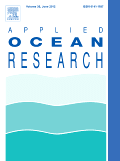
APPLIED OCEAN RESEARCH
Charting New Waters in Applied Ocean ScienceApplied Ocean Research, published by Elsevier Scientific Ltd, stands as a premier journal in the field of ocean engineering, with an impressive impact factor derived from its esteemed reputation and contributions to the discipline. Having been established in 1979, the journal has continually provided a platform for groundbreaking research, fostering innovation and advancement in applied ocean science through a diverse array of topics, including marine technology, coastal engineering, and ocean energy. Currently holding a prestigious Q1 ranking in the Scopus category of Ocean Engineering, with a rank of 10 out of 105 and a notable 90th percentile, Applied Ocean Research is a vital resource for researchers, professionals, and students dedicated to understanding and solving complex challenges linked to ocean environments. Although it provides subscription-based access, the depth and quality of research featured make it a key reference point for those in academia and industry alike. Located in the heart of London, this journal embodies a commitment to excellence in the study of ocean phenomena, positioning itself as a critical conduit for knowledge dissemination and professional growth in this dynamic field.